Which technology should your SaaS business pick to succeed? This question is not uncommon these days. Quite the opposite because the SaaS model has become a meaningful part of every business domain. The demand for SaaS software development services is higher than ever.
In this article, we will discuss frameworks suitable for SaaS development, as well as zoom in on Ruby on Rails, in particular, with all the benefits it provides. So, if you’re planning to build a SaaS product, this piece will be invaluable to consider before starting.
What distinguishes SaaS product development?
SaaS has completely changed the way companies develop and distribute software applications. Unlike on-premises applications that must be manually installed and updated, SaaS products run in the cloud, are always up-to-date, and can be accessed from anywhere. This means businesses can get up and running faster, scale more easily, and invest less upfront.
The benefits of SaaS go far beyond convenience. Today's users expect software that works on any device, integrates with their favorite tools, and keeps their data secure. This means that to stay ahead, SaaS companies need to focus on strong security, smooth performance, and reliable cloud hosting.
The key things to get right in SaaS:
- Security - protecting user data ensuring compliance with industry regulations.
- Scalability - the ability of the platform to scale with demand.
- Integrations - the ability to integrate with third-party applications to extend functionality.
Because SaaS is cloud-based, the choice of technology is fundamental: it will affect everything from performance to security. Let's take a closer look at the top frameworks for building SaaS applications.
Read also: SaaS vs PaaS vs IaaS: Choosing the Best Cloud Computing Model
Great frameworks for SaaS development
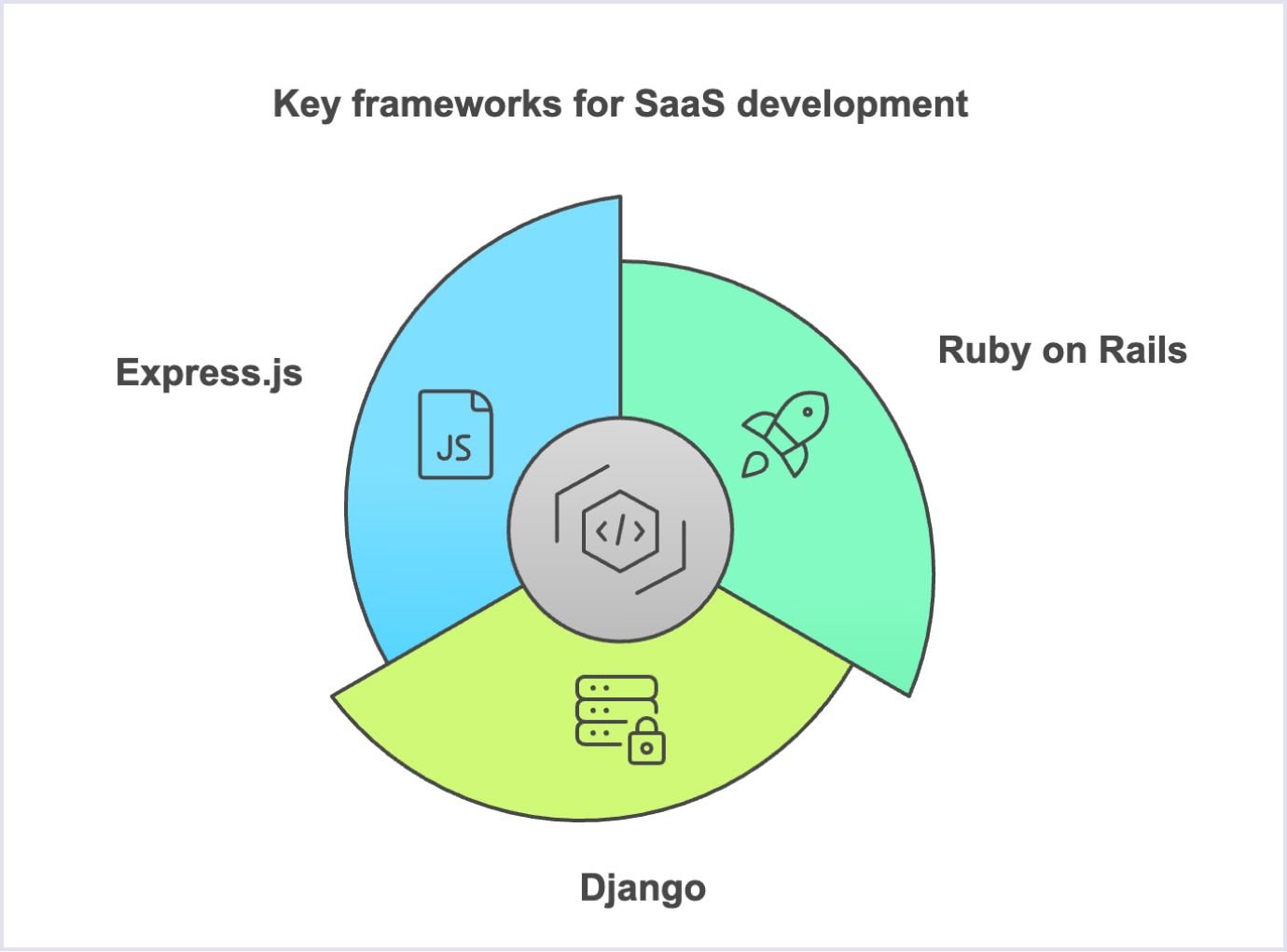
Choosing the right framework is the foundation of any SaaS product. Enterprises are now looking for frameworks that guarantee fast development cycles, robust security features, and seamless integrations as competition in the SaaS space increases.
In general, Codica's experience with custom software development services for SaaS products has led us to recommend the following as the most powerful frameworks for building high-performance cloud-based applications.
Ruby on Rails
Ruby on Rails framework (RoR) has long been a go-to for SaaS startups and enterprises alike. It gained popularity through Basecamp, one of the first SaaS platforms, and has since gone on to power Shopify, GitHub, Zendesk, and many more.
What makes Rails perfect for SaaS?
- Speed & efficiency - Rails follows the convention over configuration approach, which means developers spend less time on setup and more time building features.
- Rich ecosystem - with over 184,000+ open-source gems, teams can integrate pre-built solutions instead of coding from scratch.
- Security & scalability - RoR comes with built-in protection against SQL injection, cross-site scripting (XSS), and data leaks, making it a safe choice for handling user data.
RoR's clean, maintainable codebase makes it ideal for SaaS companies that want to launch quickly and scale without tech debt.
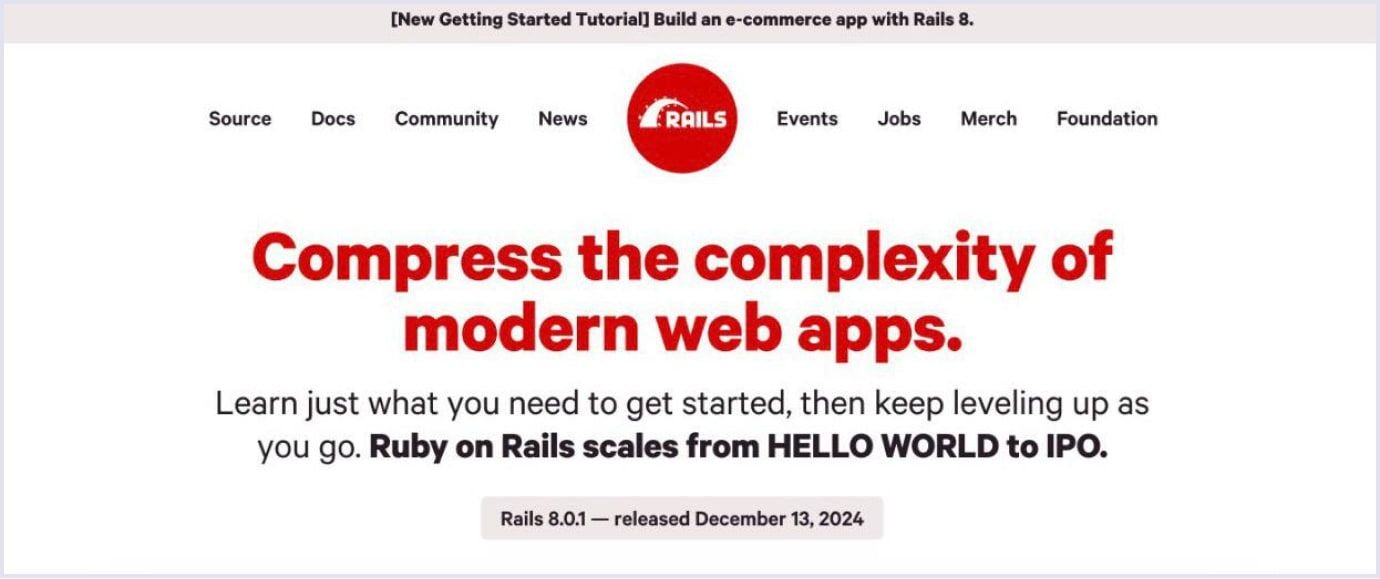
Source: Ruby on Rails
Django
Django is a Python-based framework known for its security, scalability and modularity. It has been used to build Instagram, Spotify, and Disqus, proving its reliability for large-scale applications.
Why choose Django for SaaS?
- Security first - Django prevents common security threats out of the box, making it a strong choice for handling sensitive user data.
- Rapid development - built-in features such as an admin panel and authentication system speed up development.
- Scalability - a monolithic structure allows organizations to build large applications with ease.
While Django is an excellent option, its strict design rules and configuration-heavy approach can slow the development process in comparison to Ruby on Rails.
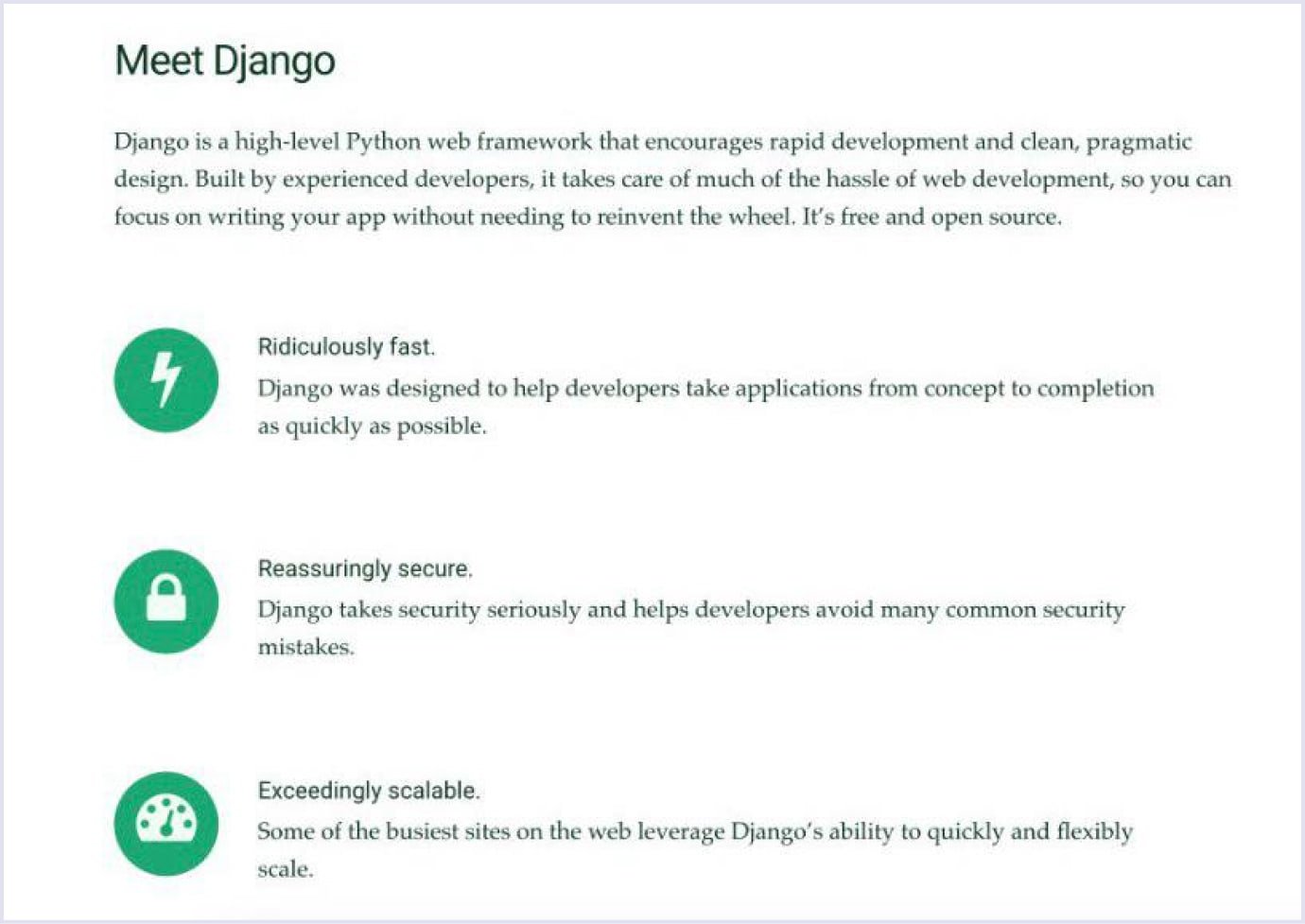
Source: Django
Express.js
Express.js is a fast, lightweight framework built on top of Node.js, making it ideal for real-time applications and microservices. It powers high-performance platforms like Trello, Uber, and LinkedIn.
What makes Express.js great?
- Lightning-fast performance - non-blocking architecture enables fast data processing and real-time updates.
- Flexible & minimalist - unlike Django and Rails, Express.js gives you complete control over your application's structure and components.
- Perfect for APIs & microservices - many modern SaaS platforms use Express.js to build modular and scalable backend services.
However, Express.js lacks built-in security and requires additional modules for data protection, making it a better choice for experienced development teams.
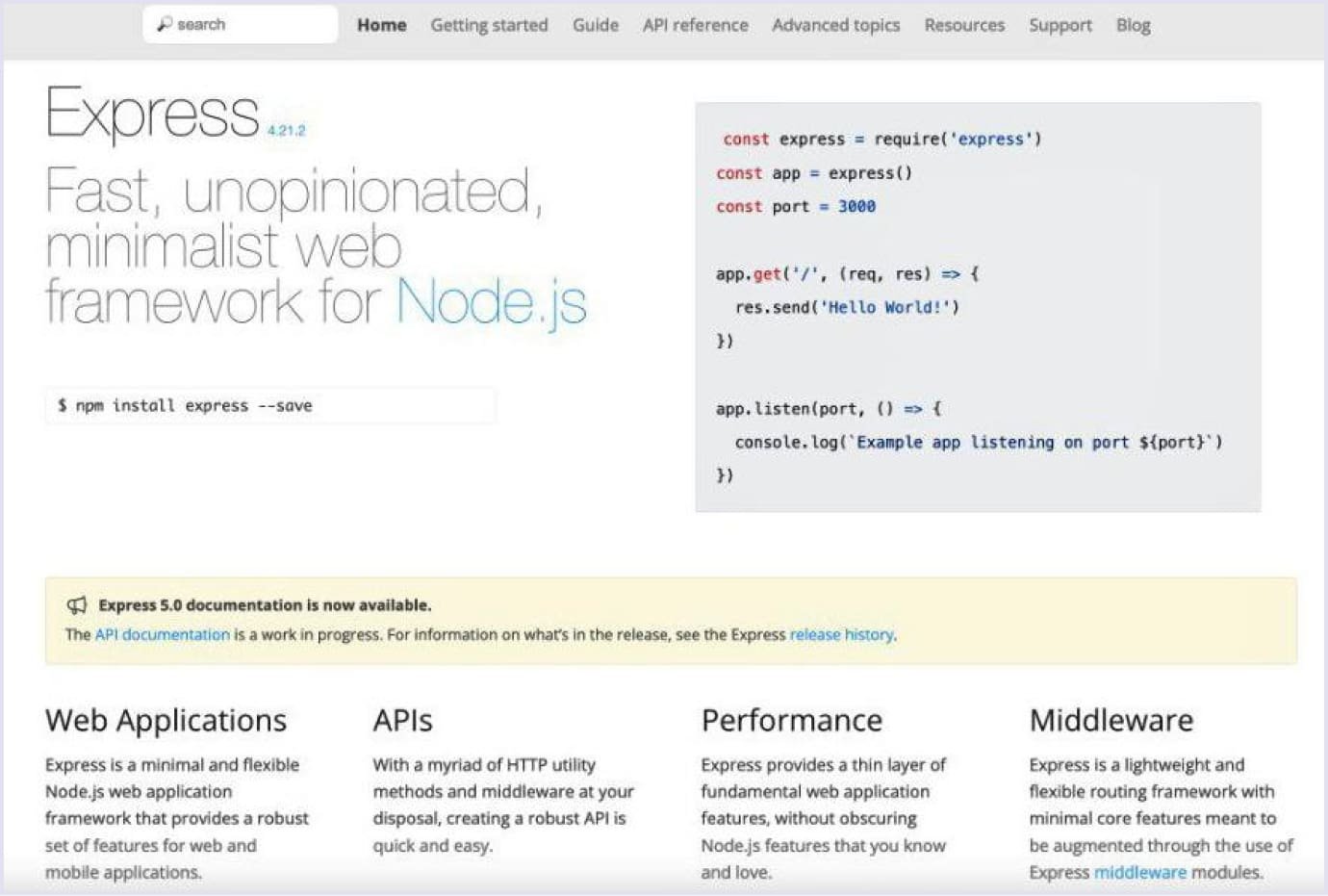
Source: Express.js
Why we choose Ruby on Rails for SaaS development
Some of the reasons SaaS leaders love Ruby on Rails are scalability, speed, security, and rapid development: a solid foundation from which to grow. Whether building an entirely new platform or fine-tuning an existing one, Rails ensures ease of development and long-term reliability.
At Codica, we build custom SaaS solutions that reach the market, scale with ease, and maintain performance by ensuring security over time. Ruby on Rails remains our framework of choice because it offers a clean architecture, a huge library of open-source gems, and a streamlined development process that accelerates product delivery while maintaining the highest quality.
We're leveraging Rails' developer-friendly ethos and best practices to help companies get to market faster, optimize performance, and build future-proof SaaS applications that outshine the competition.

Effortless scalability: ready for growth
A successful SaaS product must handle increasing traffic, data, and user activity without performance degradation. Ruby on Rails is designed for horizontal scaling, meaning that applications can be easily scaled across multiple servers.
Platforms like Shopify and GitHub have scaled to millions of users using Rails because of its ability to modularize the structure and perform background job processing - the ability to efficiently handle high-demand workloads.
With tools like Sidekiq and Redis, we make sure your platform can handle thousands of transactions per second. So no matter how fast your business grows, your operations remain smooth and responsive.
Unmatched performance: speed meets stability
Speed is a make-or-break factor in SaaS. If an application is slow, users are lost. Rails ensures that every request is served with maximum efficiency. The Model-View-Controller architecture keeps applications organized and optimized. Advanced caching, database query optimizations, and asset preloading make response times super-fast, even under heavy traffic.
With Rails, we reduce server load, optimize data retrieval, and increase processing efficiency - all with the goal of delivering a seamless user experience that keeps them coming back for more. From real-time analytics to complex financial transactions, Rails keeps SaaS applications running like a well-oiled machine.
Enterprise-grade security: built-in protection
Security isn't an afterthought - it's a core requirement. Ruby on Rails is secure out of the box: it comes with built-in protection against SQL injection, cross-site scripting, and cross-site request forgery. It also makes it easy to encrypt data, secure APIs, and set up role-based access control without ever compromising your application's HIPAA, GDPR, or SOC 2 requirements.
With regular security updates and a proactive developer community, Rails helps SaaS companies stay ahead of cybersecurity threats at all levels to protect sensitive user data, transactions, and system integrity.
Faster development: speed to market without compromise
Timing is everything in the SaaS world. Ruby on Rails follows the principle of convention over configuration, which means there is no unnecessary setup to do, speeding development. We integrate authentication, payments, third-party services, and analytics without reinventing the wheel, reducing development time by up to 50%.
Rails also follows the "Don't Repeat Yourself" principle, keeping code clean, efficient, and reusable in the future, which, combined with automated testing tools, leads to seamless rollouts and updates, ensuring that your SaaS product evolves quickly and reliably without a single minute of downtime.
Best SaaS product examples built with Ruby on Rails
The continued success of GitHub, Zendesk, and Shopify highlights why Ruby on Rails remains the preferred choice for SaaS development.
GitHub
GitHub has changed the way developers work and collaborate, offering a hosted platform that provides version control, code collaboration, and open-source contributions all in one place. Built from the ground up on Ruby on Rails, the framework's rapid development and modular structure allowed it to scale as the world's largest code repository.
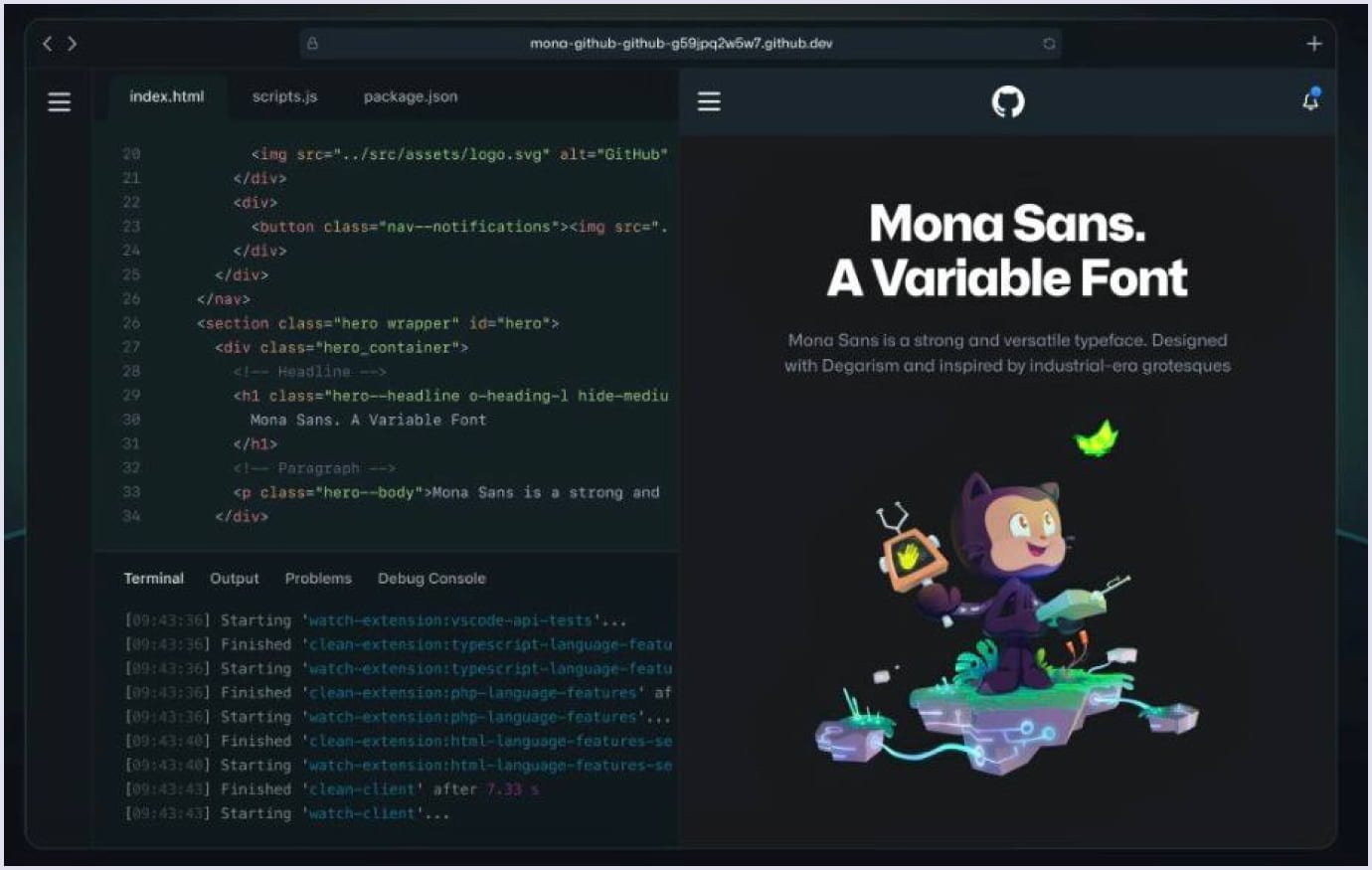
Source: GitHub
GitHub thrived on the scalability and maintainability provided by Rails. As it grew to support millions of repositories and deployments for companies around the world, its RoR architecture meant that features could be continuously rolled out without impacting performance.
To this day, Rails enables GitHub to support hundreds of millions of users, seamlessly integrate with third-party tools, and keep developer interactions intuitive.
Zendesk
Zendesk was one of the first to offer cloud-based customer support for businesses, and its help desk made it easier for companies to communicate with their customers and automate service management. Since it was created, Zendesk has used Ruby on Rails to make sure that everything runs smoothly, is scalable, and is responsive for the site that handles millions of customer interactions every day.
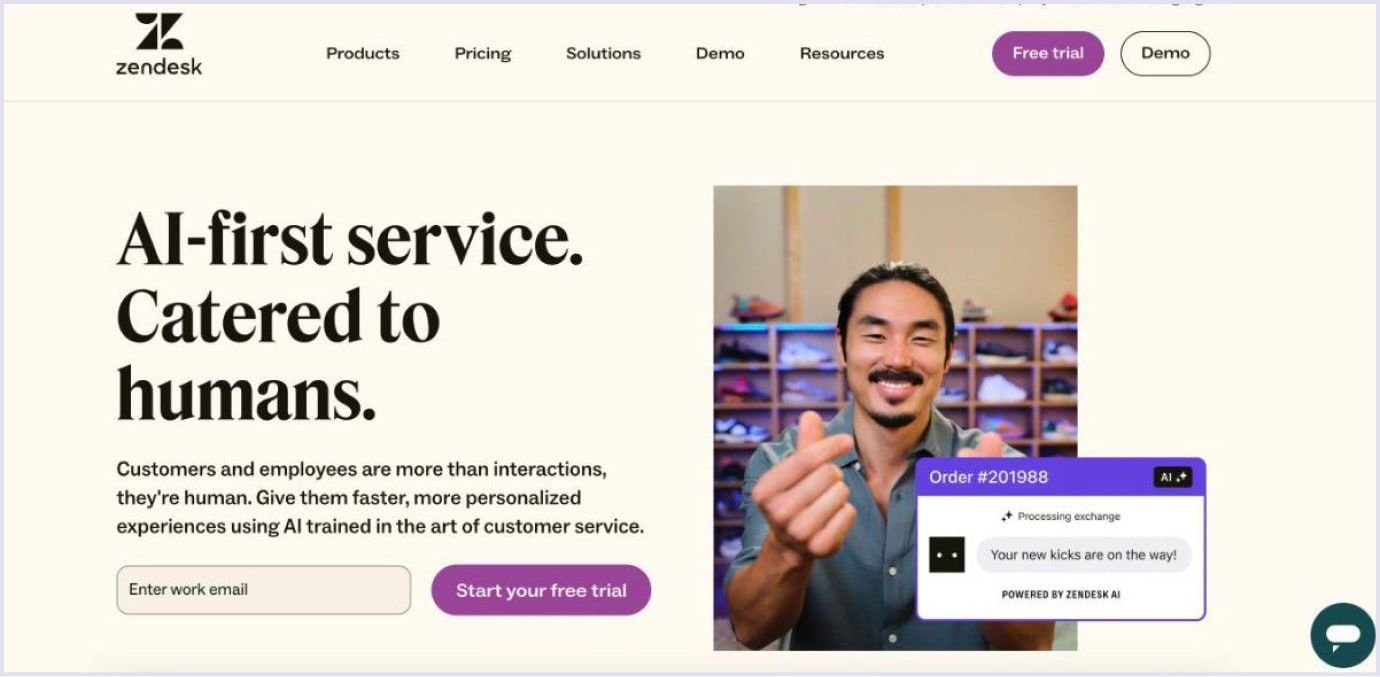
Source: Zendesk
The flexibility that Rails provides has been key to adapting Zendesk's product offering to keep up with changing business needs. It's also really flexible, so it's easy to add new features. Plus, it comes with built-in security measures that keep your platform compliant with privacy regulations worldwide. And because Rails can handle a ton of traffic, Zendesk can deliver support solutions to major enterprise customers like Slack, Netflix, and Uber without any problems.
Shopify
Shopify has reimagined online retail, giving entrepreneurs and companies a scalable ecommerce platform that's empowering millions of businesses in over 175 countries. Since it was founded in 2004, Ruby on Rails has been key to Shopify's ability to process billions of transactions while still providing a smooth user experience.
Rails' performance optimization and modular design help Shopify handle 4 million requests per second, so merchants can sell without any slowdowns. On top of that, the developer-friendly ecosystem of RoR has helped Shopify extend an API-first architecture, which makes it super easy for businesses to integrate custom functionalities. Rails' caching mechanisms and database management are really powerful, so Shopify stays ahead of the pack in the ecommerce industry.
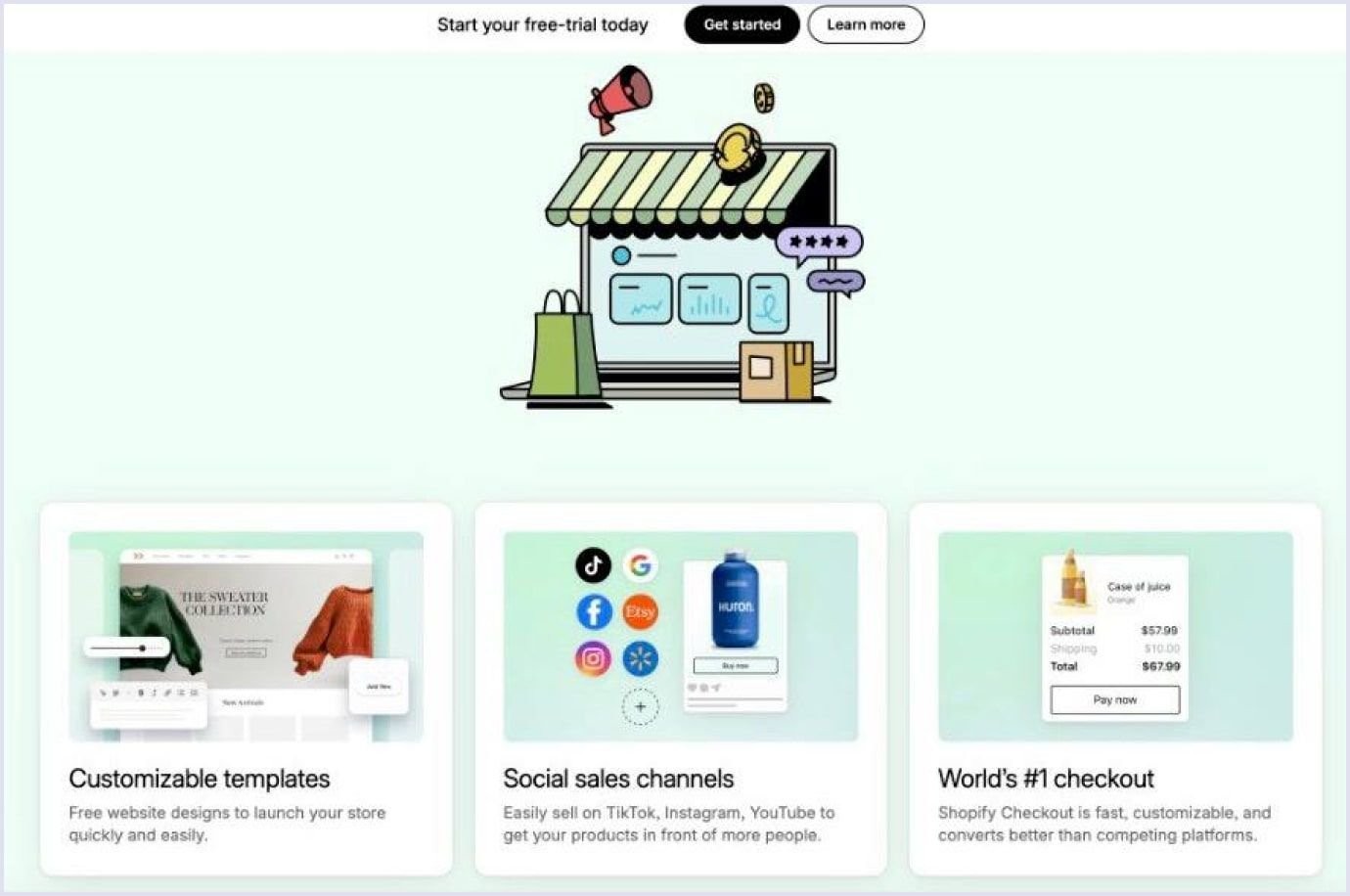
Source: Shopify
Codica's expertise in SaaS product development
Since 2015, Codica has helped numerous startups and established businesses on their way to success. And one of our significant directions is SaaS development. Codica team is always ready to take on new SaaS challenges, including but not limited to:
- SaaS development from the ground up;
- Integration with third-party services;
- Existing SaaS product tweaking;
- On-premises-to-cloud migration.
We provide SaaS development services in various domains, including automotive, healthcare, recruiting, travel, ecommerce, and more. Therefore, we have plenty of expertise in developing customer relationship management, content management, and inventory management systems.
As an example, we worked on one custom marketplace for trading domain names. The mission was to build a high-performance, intuitive, and scalable solution that makes it easy to buy and sell domain names.
Codica created a robust search engine for instant and precise domain discovery, included automated listing tools, and built a simple UI/UX for easy navigation. Moreover, we maintained smooth transactions and strong security elements so that the platform became a safe hub for domain trading.
Summary
Compared to building traditional software, SaaS product development is more technically demanding. It operates in the cloud and, thus, requires a solid infrastructure. Therefore, along with many other tools, we prefer Ruby on Rails, as it delivers much-needed flexibility and stability at the same time. It amplifies the main SaaS benefits by allowing us to launch the product faster and help you generate revenue faster. After all, choosing Ruby on Rails for your SaaS project gives you powerful and cost-effective solutions.
On a closing note, feel free to contact us if you share our vision of developing SaaS products with a powerful tech stack. Our expert team will be glad to help you create a successful product on time and within budget.

